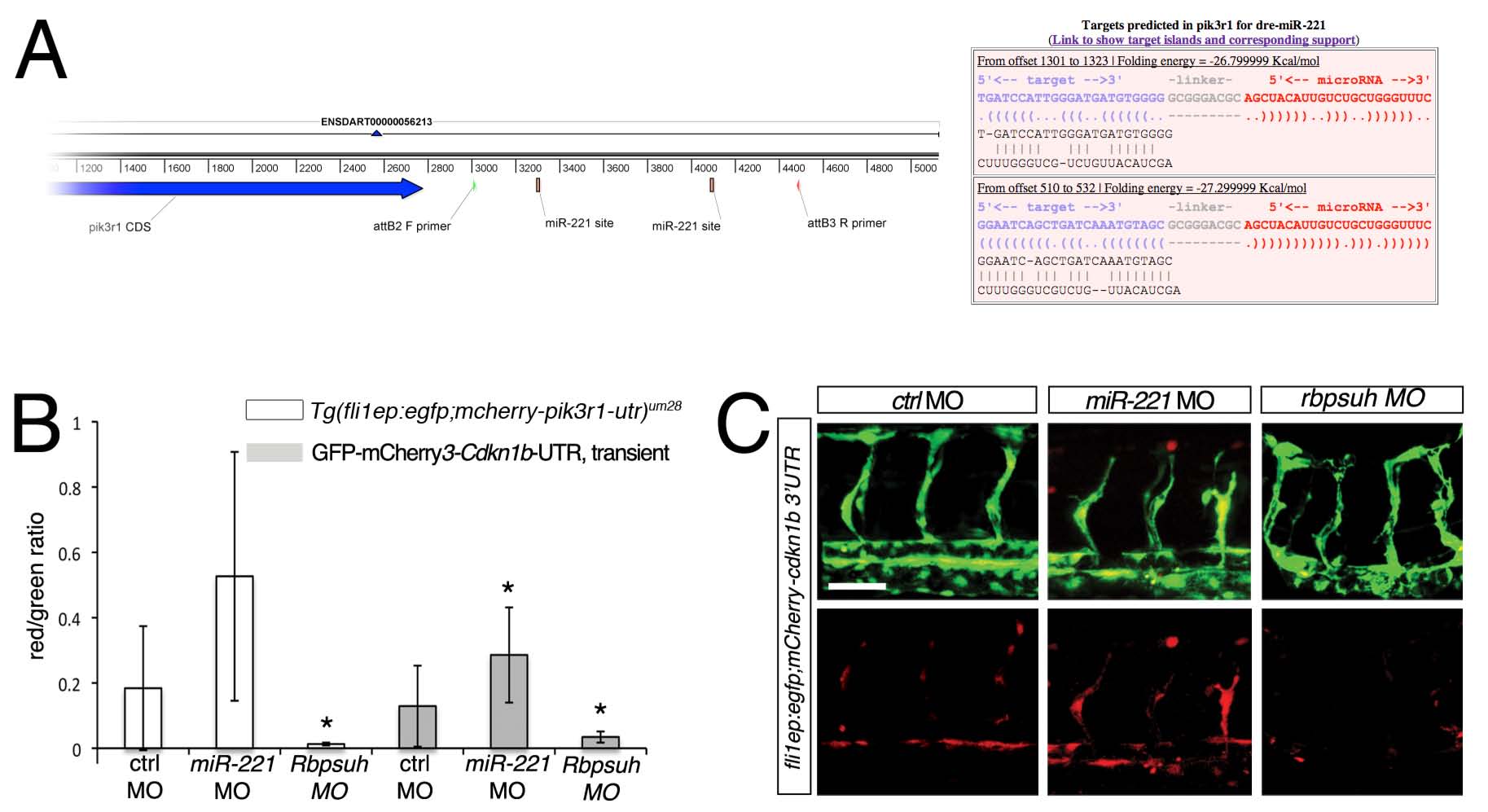Fig. S4
pik3r1 and cdkn1b are targets of miR-221 in zebrafish.
(A) Left, pik3r1 transcript showing location of primers used to construct the pik3r1-3′UTR sensor fragment and location of predicted miR-221 binding sites. Right, output from rna22 showing pairing between mature zebrafish miR-221 and putative target sites in the pik3r1 3µ UTR.
(B) Quantification of fluorescence in endothelial cell autonomous sensor assay. Red/green ratio indicates comparison of relative voxel intensities derived from 3-dimensional reconstructions of confocal micrographs of either stable Tg(fli1ep:egfp;mcherry-pik3r1-utr)um28 embryos or wild type embryos transiently co-injected with the cdkn1b endothelial sensor construct and Tol2 transposase mRNA. In both cases, embryos were injected with 10 ng control MO, 10 ng mir-221 MO, or 2.5 ng rbpsuh MO. * p<0.05; 7 to 13 embryos for each manipulation, obtained from 3 independent experiments.
(C) Confocal micrographs of embryos transiently co-injected with the fli1ep:egfp;mcherry-cdkn1b-utr construct with indicated MOs (doses noted above). Lateral views, dorsal is up, anterior to the left. Scale bar is 50 μm.
Reprinted from Developmental Cell, 22(2), Nicoli, S., Knyphausen, C.P., Zhu, L.J., Lakshmanan, A., and Lawson, N.D., miR-221 Is Required for Endothelial Tip Cell Behaviors during Vascular Development, 418-429, Copyright (2012) with permission from Elsevier. Full text @ Dev. Cell

